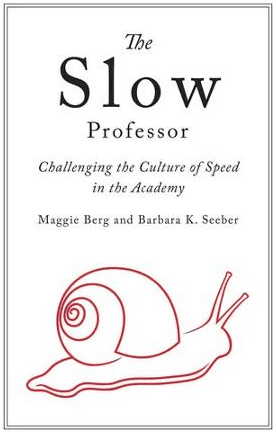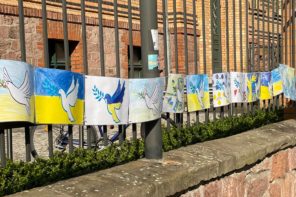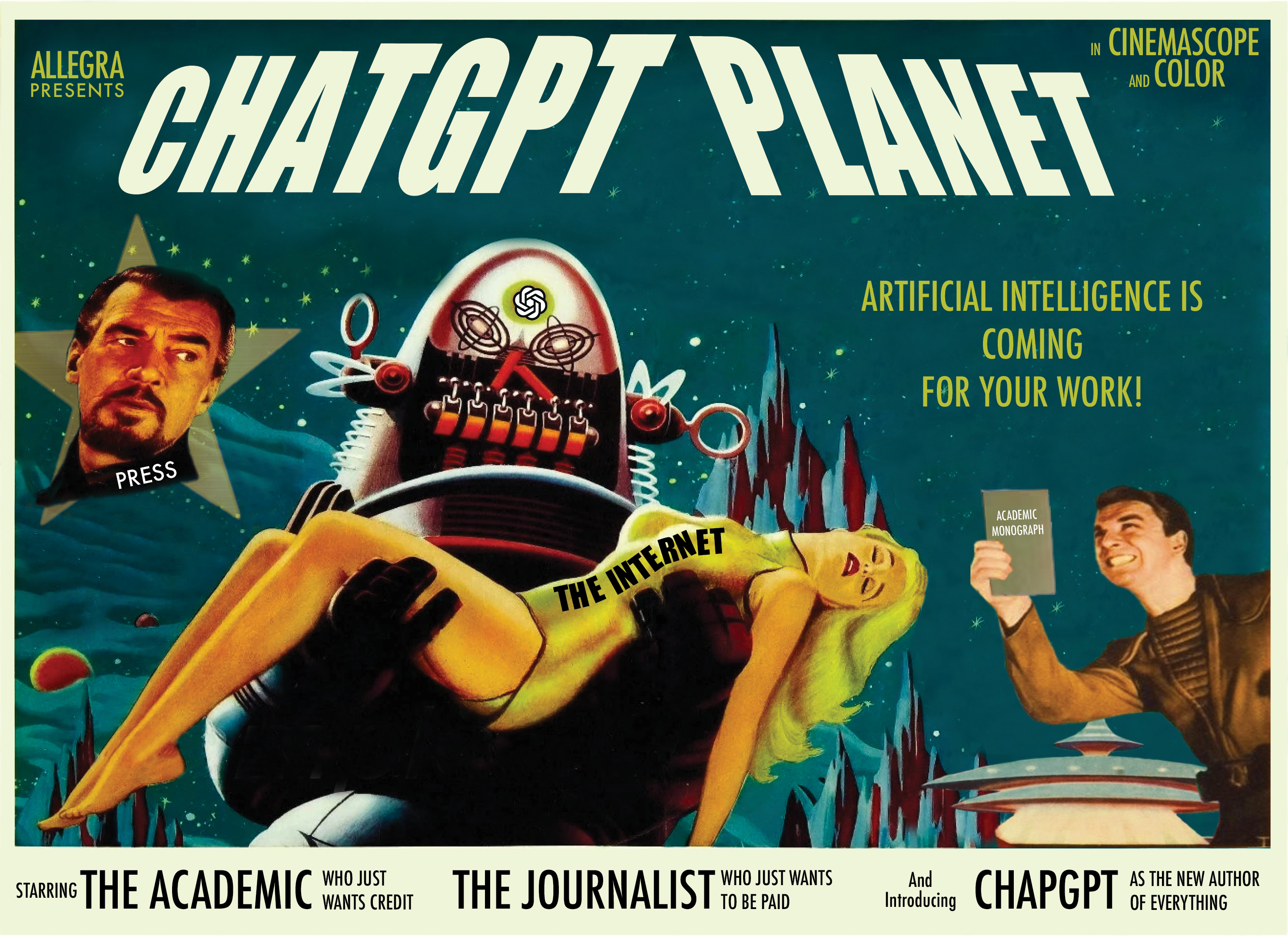The Slow Professor originated in telephone conversations about coping with our academic jobs. Not reading an email sent by the department chair at 10:45 p.m. until the next morning led one of us into paroxysms of guilt. Being asked to vet essays for a prize within ten days prompted a discussion about when it is OK to say “no.” Reading Carl Honoré’s In Praise of Slow turned our desire to be less harried into a philosophical and political commitment to shift our sense of time. Honoré documents the benefits of extending the principles of Slow Food to other areas of our lives. His inclusion in the last chapter of quotations from Dean Harry Lewis’s open letter to Harvard undergraduates entitled “Slow Down: Getting More out of Harvard by Doing Less” left us hungering for more. Our telephone conversations became more upbeat as we generated strategies to alleviate our time stress. We then came across Vic Catano et al.’s “Occupational Stress in Canadian Universities: A National Survey” originally published by the Canadian Association of University Teachers (CAUT) in 2007. The results concur with previous studies in the UK and Australia; ironically, it was liberating to read that stress in academia exceeds that found in the general population.
We realized we were not alone. We shifted our thinking from “what is wrong with us?” to “what is wrong with the academic system?”
We did not make this shift overnight. Academic training includes induction into a culture of scholarly individualism and intellectual mastery; to admit to struggle undermines our professorial identity. The academy as a whole has been reticent in acknowledging its stress; to talk about the body and emotion goes against the grain of an institution that privileges the mind and reason. Furthermore, the long-standing perception of professors as a leisured class has produced a defensive culture of guilt and overwork. We are busy countering the widely held notion of the ivory tower. How many of us find that we snap in the grocery store when we have to explain yet again, “No, I don’t have four months off in the summer”? It is not just that non-academics don’t understand what we do. The notion of the leisured professor is actively propagated; according to CareerCast – widely disseminated in the mainstream media – being a professor was ranked as the least stressful occupation in 2013 and the fourth least stressful in 2014. The reality, as William Deresiewicz summarizes in “Faulty Towers: The Crisis in Higher Education”, is that “academic labor is becoming like every other part of the American workforce: cowed, harried, docile, disempowered,” but “the stereotype of the lazy academic is, like that of the welfare queen, a politically useful myth.”

The more we reflected on the links between our experiences and the findings of Catano et al.’s survey, the more certain we became that individual professors’ well-being has far-reaching effects. The harmful effects of stress on our health and communities are now generally acknowledged. What is less evident is that addressing individual professors’ stress has political and educational ramifications. Bill Readings, in The University in Ruins, argues that it is “the administrator rather than the professor” who is the “central figure” in what is fast becoming a “transnational bureaucratic corporation.” We chose our book title, The Slow Professor, to highlight individual agency within the institutional context. Just as Slow Food resists agribusiness by focusing on the small-scale producer, we resist the corporate model’s effacement of the role of the professor. The following manifesto offers, in distilled form, a counter-identity to the beleaguered, managed, frantic, stressed, and demoralized professor who is the product of the corporatization of higher education.
We are Slow Professors. We believe that adopting the principles of Slow into our professional practice is an effective way to alleviate work stress, preserve humanistic education, and resist the corporate university.
The Slow Movement – originating in Slow Food – challenges the frantic pace and standardization of contemporary culture. While slowness has been celebrated in architecture, urban life, and personal relations, it has not yet found its way into education. Yet, if there is one sector of society which should be cultivating deep thought, it is academic teachers. Corporatization has compromised academic life and sped up the clock. The administrative university is concerned above all with efficiency, resulting in a time crunch and making those of us subjected to it feel powerless. Talking about professors’ stress is not self-indulgent; not talking about it plays into the corporate model.
In the corporate university, power is transferred from faculty to managers, economic justifications dominate, and the familiar “bottom line” eclipses pedagogical and intellectual concerns. Slow Professors advocate deliberation over acceleration. We need time to think, and so do our students. Time for reflection and open-ended inquiry is not a luxury but is crucial to what we do.
The language of crisis dominates the literature on the corporate university, urging us to act before it is too late. We are more optimistic, believing that resistance is alive and well. We envisage Slow Professors acting purposefully, cultivating emotional and intellectual resilience. By taking the time for reflection and dialogue, the Slow Professor takes back the intellectual life of the university.
Maggie Berg and Barbara Seeber. The Slow Professor: Challenging the Culture of Speed in the Academy. University of Toronto Press. 2016.







